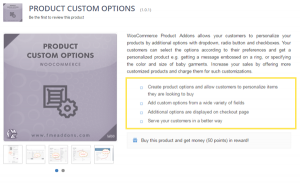It’s been a few years since the first few “Uber for X” startups broke Silicon Valley, but if I’ve noticed anything, it’s that the trend has nowhere near slowed down. In fact, since Uber’s multi-billion dollar valuation has only increased over the past five years, more and more entrepreneurs have hopped on the “Uber for X” bandwagon, hoping to get their millions—or billions, for that matter. Still, while some might weary about the business model’s longevity, especially after watching Homejoy collapse before our eyes this past summer, others are confident that this trend isn’t going anywhere. With that in mind, I’ve collected six top startups that are Uber-ing better than Uber themselves.
Handy: Uber for Home Tasks

It’s not enough that your apartment building’s handyman comes once in a blue moon to help out with lighting, plumbing, and any other handyman-type repairs. If you had a handyman on retainer, imagine all the chores, cleaning, and repairs you could finally get done. Handy offers just that, an on-demand solution to call and book handymen as soon as one day before you need them. Handy offers a range of services, from hanging picture frames and shelves to installing and repairing outlets and light switches. Finally, you can dust the cobwebs off of that disassembled IKEA table that’s been sitting in storage for months. I’m not saying you couldn’t do it yourself (but honestly, why has it been sitting there for so long?), but knowing you can book a handyman within a minute could seriously calm you down after you just wasted half a day painting your bedroom the wrong shade of blue. And after Homejoy’s collapse a few months ago, Handy has raked in some serious money.
Lugg: Uber for Movers

Unless you have some special secret super cheap garage, it’s not likely for city dwellers to have a big enough truck that can handle small furniture moves. It’s a hassle and often not worth the money to call moving companies days ahead of time to coordinate a move from one location to another. That’s why the founders of Lugg were determined to find an easy solution for simple couch or refrigerator moves. Essentially, people can order a mover on their phone to show up at their door within 15 to 45 minutes, ready to haul furniture across town. Lugg has gotten much more traction since it launched late 2014, and offers more than just home pickups—they’ve also partnered with major retailers like Costco, IKEA, Home Depot, and Pottery Barn. While they’re only available in San Francisco today, the startup is hoping to expand to other major cities by 2016.
Heal: Uber for Doctors

These days, we only see doctors (you know, the ones with stethoscopes around their necks and an important briefcase in their right hand) making house calls in films and television shows set in the 1960s. It’s been about thirty years since house calls have disappeared from the American norm, but Heal is eager to bring this nostalgic trend back. Not only are house calls easier for the patient, who would happily give up dragging themselves to the doctor’s office, but it’s more helpful for the doctor to understand and diagnose the patient, since they’re able to observe the patient’s home environment. What’s more, if you use Heal, a doctor is in and out of your home in just sixty minutes, and for a flat fee of $ 99, too. Although Hal is only available in San Francisco and Los Angeles now, they’re looking to expand to fifteen other major US cities in the coming future.
Bringg: Uber for Delivery

I’m sure when I say Uber for Delivery, you start thinking Instacart, Postmates, and Uber themselves. But Bringg is completely different; while most on-demand startups focus on providing services directly to the consumer, Bringg targets businesses. That is, business looking to more efficiently manage and monitor their deliveries. But Bringg hasn’t neglected the end consumer either—through Bringg’s app, businesses are able to provide their customers with real-time tracking and smart notifications, just like Instacart and Postmates. Put simply, Bringg permits any delivery business, no matter the size or location, to have their own Uber-like logistics management system. It might sound like a lot of complicated backend coordination would be involved, but actually it’s as easy as downloading an online or mobile app. So if anyone’s confident in the “Uber for X” business model, it’s Bringg, a company that’s single handedly encouraging a never-ending flood of mini, industry specific Uber-like delivery services.
Washio: Uber for Laundry
It’s true, most of us are used to our moms doing our laundry, and we’ve have come to realize that we’ll never get our t-shirts to smell and feel quite the same. That, and we don’t have the energy to lug three weeks of laundry down the street to the laundromat. Luckily, there’s Washio—an on-demand service that picks up your dirty laundry right from your house and delivers it back clean, folded, and fresh smelling within 24 hours. And while there are several apps that offer similar services, Washio is available in the most cities throughout the US: that is, Chicago, Boston, Los Angeles, Oakland, San Francisco, and Washington DC. It’s a bit pricy, though not more pricy than any other on-demand laundry service, but definitely worth it if you’re short on time or live in a building without a washer and dryer (or a clean and reliable one, at least).
Dogvacay: Uber for Dog Sitting

Luna loves Dogvaca
If you’re anything like me and Luna, you and your dog suffer from separation anxiety nearly every morning when you leave the house for work. I wish it weren’t the case, but sometimes I can’t bring Luna with me everywhere I go. Of course, I could hire a conventional dog sitter, but vetting people and making sure there’s a unique bond between Luna and the sitter is tough (not to mention, expensive) business. That’s why Dogvacay is here—to ease our concerns and ensure that our dogs are in the hands of the most friendly, professional sitters there are. Dogvacay gets nearly 100,000 applications a year and only accepts about 20,000. That’s tougher than most college acceptance rates.) It’s a company that’s growing at a supersonic speed, now available in over 300,000 cities in the US and Canada and tens of millions of dollars in funding.
(113)







